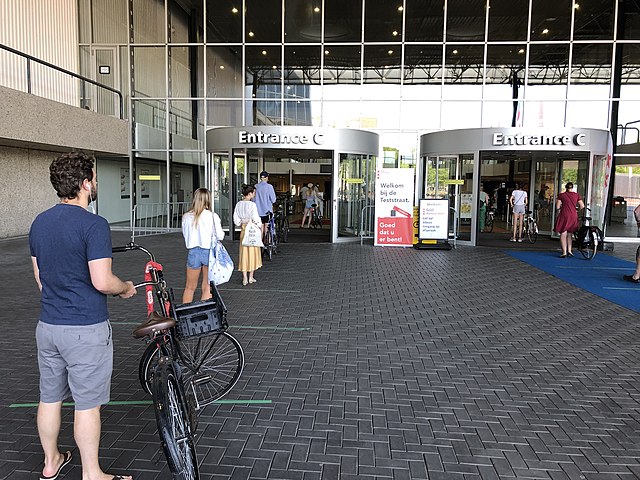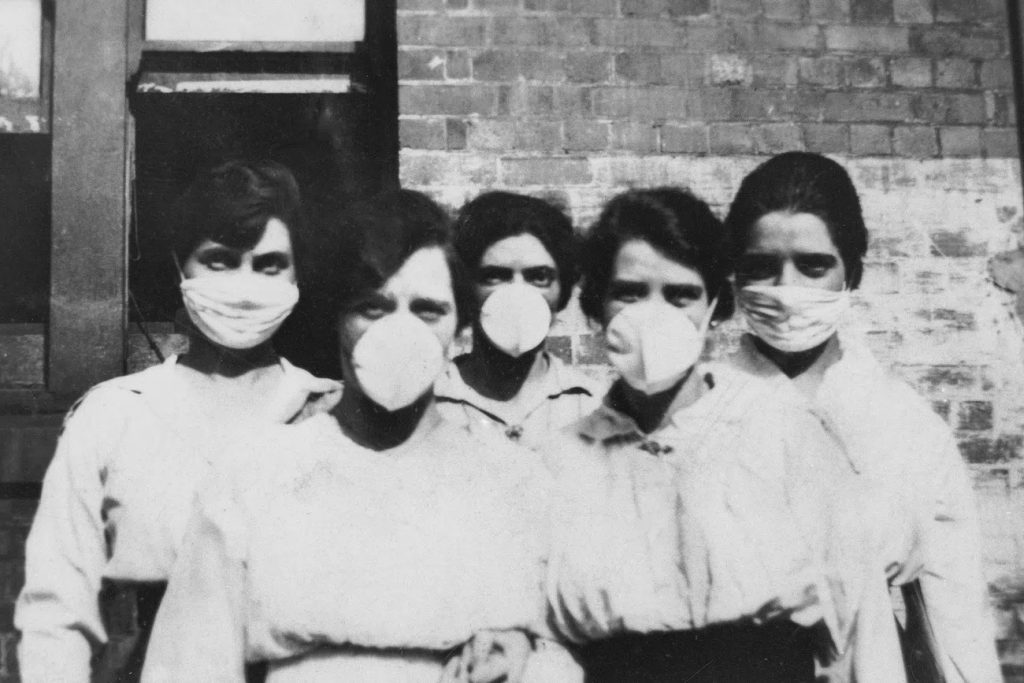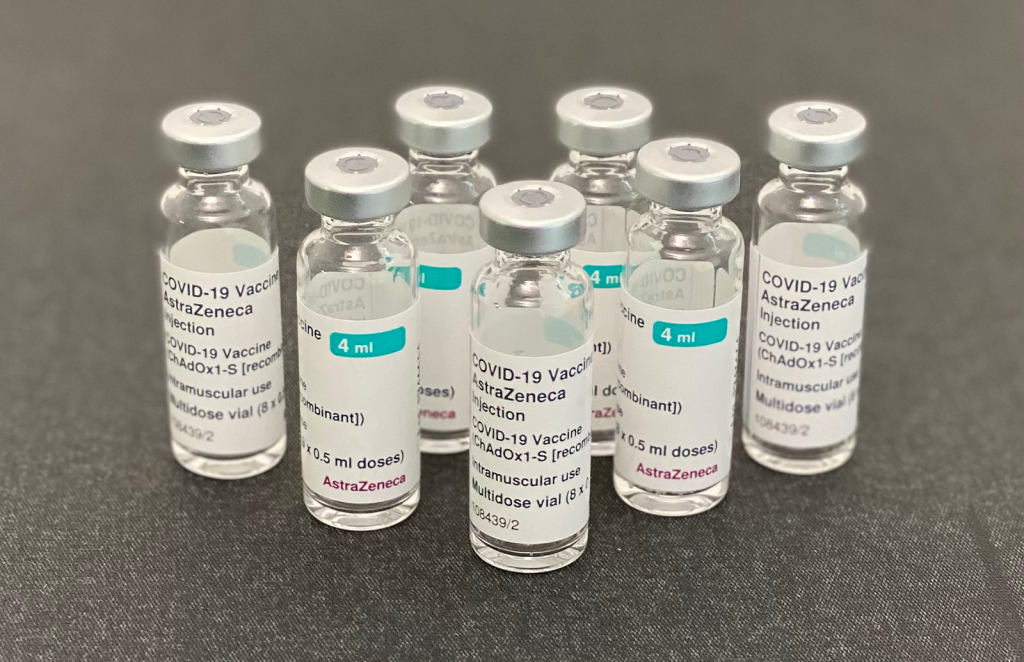22 February 2024 Seminar: Navigating gaps and biases in surveillance data
For the first Pandemics & Society Seminar of our Spring 2024 series, we are pleased to welcome Nita Bharti (Penn State). The seminar will be held on Thursday, 22 February at the normal time (1600 CET). More information about our speaker and the presentation is below. You can sign up for email notifications about the seminar series, including the Zoom details, here.
Abstract
As global health emphasizes data-driven approaches to improve health equity, it is increasingly important to assess the quality and representativeness of data that are used in decision making. We measured the inclusion of health vulnerable populations in mobile phone data, which are used to measure mobility, access to health care, and potential pathogen transmission. We find that the representation of health vulnerable populations in these data is both low and biased in ways that would magnify, rather than reduce, health inequities. We discuss strategies for detecting and overcoming data biases due to exclusion.
About the Speaker
Nita Bharti is Huck Early Career Professor and Associate Professor of Biology at the Huck Institutes of the Life Sciences at Penn State University. Her research lab investigates the underlying links between humans, pathogens, and the environment.
Announcing the Spring 2024 PANSOC Seminar Series

We are pleased to release the schedule for our Spring 2024 seminar series. As in previous series, the seminar will be held via Zoom at 16.00 Central European Time on Thursdays.
To access the Zoom meetings, please join our mailing list here.
8 February
Association of Severe COVID-19 and Persistent COVID-19 Symptoms With Economic Hardship Among US Families
Nicole Hair, University of South Carolina
22 February
Navigating gaps and biases in surveillance data
Nita Bharti, Penn State University
29 February
Title To Be Announced
Thomas Finnie, UK Health Security Agency
7 March
The Economic Impact of the Black Death in England, 1350 to 1400
Mark Bailey, University of East Anglia
4 April
Long COVID and Labor Force Participation in the United States
Katie Bach, Brookings Institution
**Note that Central European Summer Time begins on 31 March**
18 April
“We are not afraid but only like to take precautions”: Popular understandings of contagion during the 1918-19 influenza pandemic and their impacts on flu prevention measures in Southern California
Islay Shelbourne, University of St Andrews
2 May
Socioeconomic mortality differences during the Great Influenza in Spain
Sergio Basco, Universitat Autònoma Barcelona
23 May
Forgotten Pandemic? Revisiting the “Spanish” Influenza on the First World War’s Macedonian Front
Christos Konstantopoulos, McGill University
30 May
Racialized Epidemiologies: The Case of Black Americans During the Great Influenza, 1918–1920
Paul Skäbe, Universität Leipzig
30 November 2023 Seminar: COVID-19 Lockdowns and Mental Health, A Simulation Approach

For the final Pandemics & Society Seminar of our Fall 2023 series, we are pleased to welcome Kristina Thompson (Wageningen University). The seminar will be held on Thursday, 30 November at the normal time (1600 CET). More information about our speaker and the presentation is below. You can sign up for email notifications about the seminar series, including the Zoom details, here.
Abstract
To better prepare for future pandemics, revisiting lessons from the COVID-19 period may be useful. Doing so may help to identify the trade-offs of different containment and mitigation measures. While non-pharmaceutical interventions, particularly lockdowns, helped to slow the spread of COVID-19, they were not without negative consequences of their own. A large body of evidence has shown that depressive disorder, or depression, rose markedly during these periods. This is problematic, as depression is one of the leading causes of disability worldwide. Despite the large number of studies on the topic, these studies are largely based on statistical models, rather than computational ones. This prevents us from comparing actual and hypothetical scenarios, and limits our ability to tease out the elements of lockdowns that may have impacted depression. To that end, a microsimulation model was developed, named COMMA (COvid Mental-health Model with Agents). Microsimulation models are well-suited to exploring policy impacts on specific population sub-groups.
Individuals’ characteristics and actions during lockdowns were based on the Lifelines cohort, a representative sample of the northern Netherlands. Data from the largest city in this sample, Groningen, were used (n=5,193). Information on individual characteristics (e.g. gender, age) was taken from waves prior to the COVID-19 pandemic. Information on actions during the pandemic (e.g. working from home, maintaining physical distance) was taken from periodic COVID-19-specific questionnaires. Daily COVID-19 case information for the city of Groningen was used from the National Institute for Public Health and Environment (in Dutch: Rijksinstituut voor Volksgezondheid en Milieu). In COMMA, the probability that an individual is at increased risk of depression is estimated in several steps. First, from a matrix of ten agent characteristics, the probability of taking one of ten actions during different types of lockdowns is derived. Second, from a matrix of ten actions an individual could take during absent, partial or full lockdowns, the probability of being depressed is derived. Based on a simulation with 6,000 individuals set between 2 February 2021 and 4 February 2022, hard lockdowns in particular were associated with an increased risk of depression. In a simulation with a hard lockdown for this entire period, 75% of individuals were at increased risk of depression. In a simulation with a hard lockdown followed by a light lockdown, only 2% of individuals were at increased risk of depression. We found evidence that the severity and duration of lockdowns mattered. The negative impacts of hard lockdowns on mental health may be largely buffered by periods of fewer restrictions. These findings may be important to consider when considering future pandemic mitigation policies.
About the Speaker
Kristina Thompson is an assistant professor in the Health & Society group of Wageningen University & Research, the Netherlands. She quantitatively examines the social determinants of health. More specifically, she studies how social and economic factors across the life course may impact health and mortality. Her projects often employ complexity science approaches and computational modelling.
9 November 2023 Seminar: Age Patterns of Mortality Across Influenza Pandemics

For the penultimate Pandemics & Society Seminar of our Fall 2023 series, we are pleased to welcome Lauren Steele (University of Queensland). The seminar will be held on Thursday, 9 November at the normal time (1600 CET). More information about our speaker and the presentation is below. You can sign up for email notifications about the seminar series, including the Zoom details, here.
Abstract
During the 1918 influenza pandemic, individuals aged ~15-40 years of age were more susceptible to severe disease and death. Similar age patterns have been recorded during the 1957 and 1968 influenza pandemics, however no geographically wide-scale age curves have ever been calculated for these pandemics. Data from at least five countries will be analysed to construct age curves to identify age-related mortality during the influenza pandemics of the 20th century. Data will be collected from vital statistics and the Human Mortality Database. To further elucidate the role of age in influenza disease outcomes during pandemics, lungs taken from young adults (aged 17-30 years) who died of influenza-like illnesses during pandemic years will be analysed using a spatial transcriptomics assay to determine gene expression at the moment of death. These data will inform on why younger age groups are uniquely susceptible to severe disease during influenza pandemics.
About the Speaker
Lauren Steele is a second-year PhD candidate at the University of Queensland, Australia. She is completing her thesis on host factors which influence disease outcomes during past influenza pandemics to inform on future influenza pandemic preparedness measures.
2 November 2023 Seminar: Vaccination and Unequal COVID-19 Mortality in England

For the seventh Pandemics & Society Seminar of our Fall 2023 series, we are pleased to welcome Dr Natalie Bennett (Newcastle University). The seminar will be held on Thursday, 2 November at the normal time (1600 CET). For attendees outside of Europe, please note that daylight savings time has ended. More information about our speaker and the presentation is below. You can sign up for email notifications about the seminar series, including the Zoom details, here.
Abstract
The effectiveness of vaccination against severe COVID-19 infection and mortality is well documented, but there are inequalities in both vaccination uptake and COVID-19 mortality. Understanding whether more equal vaccination uptake might reduce socioeconomic inequalities in COVID-19 mortality is necessary for planning for future pandemics. Limited evidence available suggests that COVID-19 vaccination may have reduced inequalities in mortality. However, existing studies typically employ data covering a short time series and do not explicitly model inequalities. Using national data from the first recorded deaths through to December 2022, this study investigates whether the national vaccination program in England reduced inequalities in COVID-19 mortality associated with area-level deprivation. Descriptive analyses demonstrated that, though vaccination uptake was generally high, there was a widening gap between the most and least deprived areas in England in uptake by dose. New mortality inequality gradually declined as vaccination uptake and doses increased, and remained low throughout 2022. However, cumulative mortality inequalities rapidly grew from the start of the pandemic continued to grow throughout the entire period of observation. We estimate that more equitable vaccine uptake may have reduced, but not eradicated deprivation-based inequalities. We argue that preparation for future pandemics should include a comprehensive strategy for minimising deprivation-based inequalities.
About the Speaker
Dr Natalie Bennett is an Inequalities Research Fellow in the Applied Research Collaboration for the North East and North Cumbria at Newcastle University, England. Natalie is a Social Epidemiologist and works across a variety of interdisciplinary health inequalities projects. Her primary area of research is that of geographical inequalities in health and much of her more recent work has been in applying this focus to the COVID-19 pandemic.
